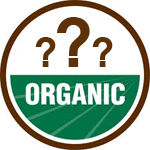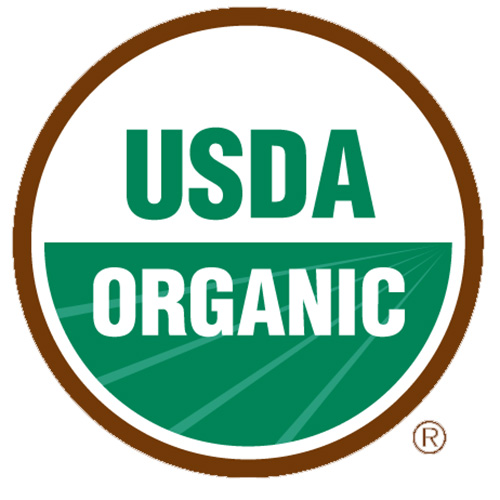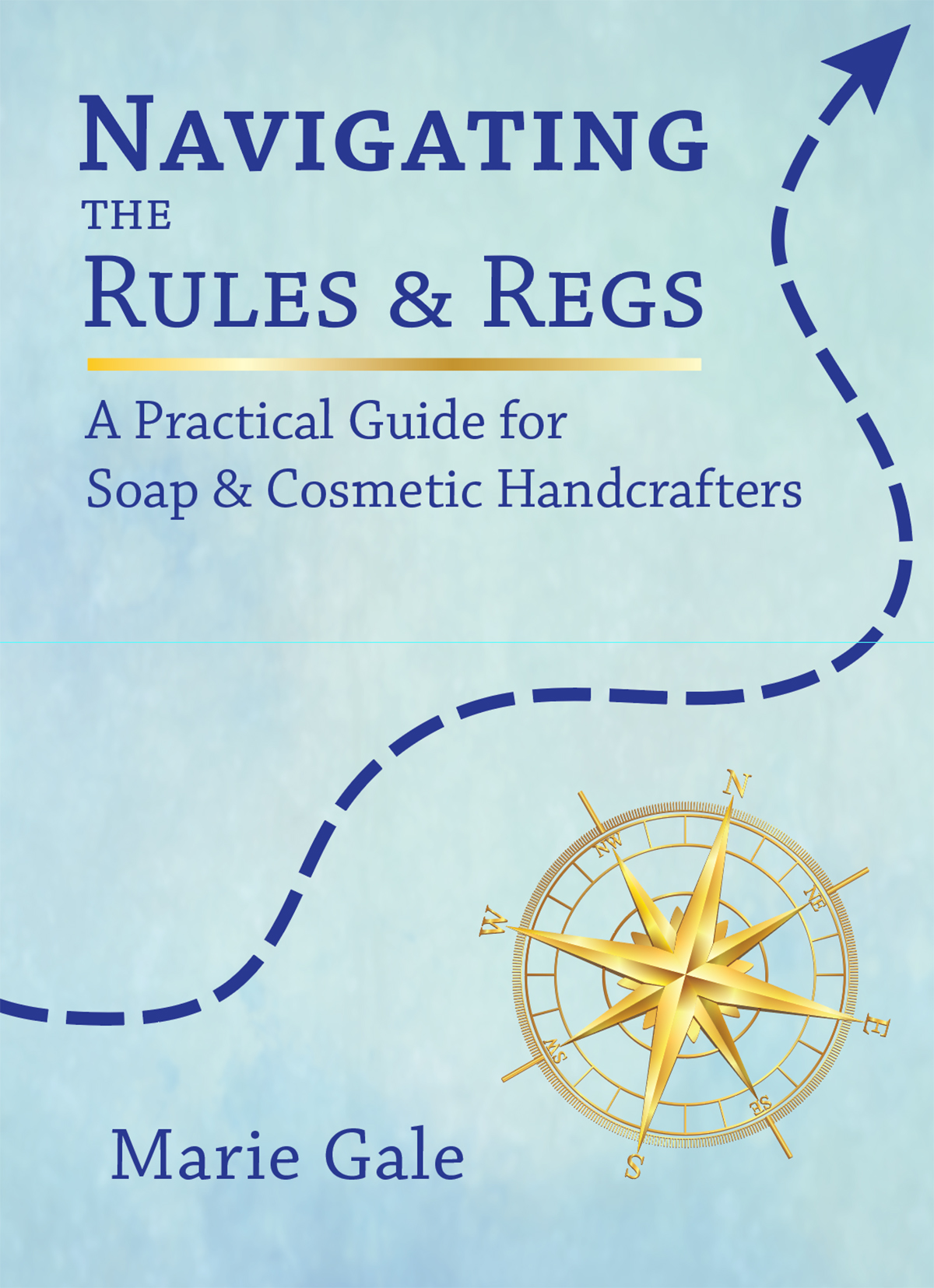Several people lately have asked me about using the term “organic” when it comes to cosmetics. Can cosmetics claim to be “organic? What about using the term “organic” in a product or company name?
I did some research, and what I discovered was a little bit surprising. It seems that the FDA and the USDA don’t actually see eye-to-eye on the subject.
From the FDA
The FDA has a page on their website about “Organic Cosmetics.” On it, they specifically say that the FDA doesn’t have a definition for the term “organic” in the Federal Food, Drug and Cosmetic Act or the Fair Packaging and Labeling Act. So the FDA doesn’t monitor the use of “organic” when it comes to cosmetics.
HOWEVER, they also point out that the USDA National Organic Program DOES have a definition of “organic.” Therefore, according to the FDA:
Directly from the FDA website:
“Cosmetic products labeled with organic claims must comply with both USDA regulations for the organic claim and FDA regulations for labeling and safety requirements for cosmetics.”
From the USDA National Organic Program
Regulation of the use of the term “organic” falls under the USDA National Organic Program (NOP). How and when the organic seal and the term “organic” can be used is defined in great detail in regulation.
Organic Labeling
The USDA’s document “Labeling Organic Products” details what the requirements and restrictions are for labeling organic products. Of particular interest to handcrafted soap and cosmetic makers is this quote:
Directly from the USDA website:
“Can a product be labeled “organic” without being certified?
“Overall, if you make a product and want to claim that it or its ingredients are organic, your final product probably needs to be certified. If you are not certified, you must not make any organic claim on the principal display panel or use the USDA organic seal anywhere on the package*.”

However, if you are not certified, you can still identify the certified organic ingredients in the ingredient declaration and the percentage of organic ingredients on an informational panel (generally that would be placed right below the ingredient declaration). The actual regulation that covers this is 7 CFR 205.305, in case you want to look it up.
Note that there is an exemption from certification mentioned: “including organic farmers who sell $5,000 or less.” I checked the actual regulations (7 CFR 205.101) and the wording specifies that it is agricultural income from organic sales of $5,000 or less.
Organic Cosmetics (USDA)
The USDA NOP program has another document, Cosmetics, Body Care Products and Personal Care Products, which provides some additional information. In it they specifically state that they:
Directly from the USDA website:
“do not define or regulate the term “organic” as it applies to cosmetics, body care or personal care products.”
However, they go on to say that:
Directly from the USDA website:
“if a cosmetic product contains or is is made up or agricultural ingredients, and can meet the USDA/NOP organic production, handling, processing and labeling standards, it may be eligible to be certified under the NOP regulations“.
The National Organic Standards Board summed it up in a recommendation (see below) and stated:
Directly from the National Organic Standards Board:
“…unless the product is specifically labeled as “USDA Organic,” the word “organic” may be used with impunity.”
Clearly, when it comes to “organic” claims for cosmetics, there is some disconnect between what the USDA is saying and what the FDA is saying.
Pending Rulemaking
In December, 2009, the National Organic Standards Board (NOSB) made a Recommendation to the National Organic Program that:
Directly from the National Organic Standards Board website:
“… organic personal care products be recognized explicitly by the National Organic Program to ensure consumers and businesses alike that the products have an unquestioned home in the USDA National Organic Program.”
As part of the document, a submission by the National Organic Program is included, which contains the specific regulations that should/could be changed.
Several months later, on April 23, 2010, the Deputy Administrator of the NOP responded to the National Organic Standards Board with a document stating what they would do. Unfortunately, it’s mostly committee-type work of collecting information and taking the recommendations of the NOSB “under advisement”.
The NOP’s response also included a section on “Discussion” which said that in March, 2010 NOP Compliance and Enforcement staff conducted monitoring activities at the 2010 Natural Products Expo West trade show. They checked 26 personal care product exhibitors and found:
“[Six] products were USDA certified by an accredited certifying agent, 21 products were not USDA certified and 14 of these products included the term “organic” in the company trade name or a general claim on the principal display panel that the product was organic.”
Obviously, they are aware that there are products out there using the term “organic” in a manner that doesn’t comply with their organic standards, and agree that something should be done about it. However, it doesn’t look like it’s a screamingly hot priority for them; not by a long shot.
Litigation and Administrative Complaints
Dr. Bronner’s has been active in the legal and administrative arena trying to get the USDA to take responsibility for the use of the term “organic” when it comes to cosmetics and personal care products. Their four and a half year effort came to an end with the federal court in San Francisco holding that the USDA has exclusive jurisdiction over the issues.
David Bronner, President of Dr. Bronner’s, wrote a lengthy letter to the Deputy Administrator of the NOP on September 14, 2012. It is quite interesting reading and gives a good summary of what has happened in the past concerning organic cosmetics and what they feel should be done (it is no longer available on the web).
In the letter it is pointed out that despite the statement that rulemaking would be undertaken, no rulemaking proceedings have been commenced (as of September, 2012).
Dr. Bronner’s appears determined to push the USDA into sorting out and clarifying the responsibilities of the NOP for overseeing the use of the term “organic” when it comes to cosmetics and personal care products.
What Does It All Mean?
From the documents I have been able to review, it appears that the National Organic Standards Board and the National Organic Program are certainly aware of the holes in the regulations when it comes to “organic” cosmetics. It also seems, if the information on their website (or lack thereof) and the communications from Dr. Bronner’s are up-to-date, that very little, if any, action is currently being taken on this front. I was unable to find any indication in the federal register that any rulemaking has been initiated.
Of course, that doesn’t mean that rulemaking won’t come at some point in the future. It is very likely that it will! When, of course, will be the question.
In the meantime, it appears that identifying certified organic ingredients in your ingredient declaration and noting the percentage of certified organic ingredients is clearly in compliance with the existing NOP standards.
Using the term “organic” on a cosmetic product (according to the FDA) seems to expect compliance with the NOP standards, but the NOP says that their standards only apply if the product is certified under their program. Since there are cosmetic and personal care products out there that use the term “organic” on the principle display panel to describe the product, or in the product or company name, and the NOP has taken no enforcement action… it looks like that is considered an acceptable practice.
However, while it might be “acceptable,” I would personally question whether it is ethical.
Consumers have come to understand that the term “organic” is defined within regulations and that products that claim to be organic (by virtue of the name, product name, or statements on the package) meet those regulations. I doubt very many consumers realize that the standards for cosmetics are different, and that (for cosmetics) the term “organic” can be used willy-nilly without impunity.
It is my hope that those who make handcrafted soap and cosmetics will choose to take the higher ground when using the term “organic,” and will follow the regulations and guidelines provided by the National Organic Program. Just because some cosmetic companies have chosen to co-opt and abuse the term “organic,” doesn’t mean that we handcrafters should.



Leave a Reply